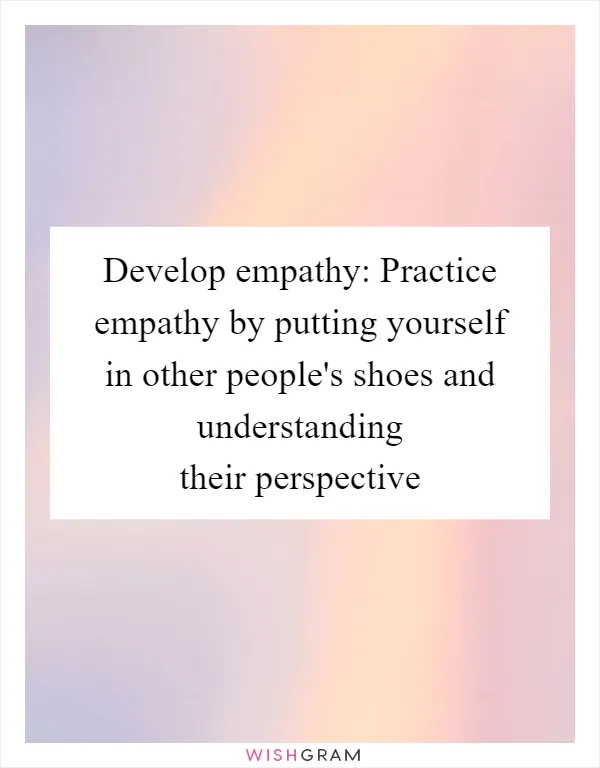Develop empathy: Practice empathy by putting yourself in other people's shoes and understanding their perspective
Developing empathy is a valuable skill that allows us to connect with others on a deeper level. It involves putting ourselves in other people's shoes and genuinely understanding their perspective. By doing so, we can foster stronger relationships, resolve conflicts more effectively, and create a more compassionate and inclusive world.
Empathy begins with active listening. When someone shares their thoughts or experiences with us, it's important to give them our full attention. Instead of interrupting or formulating our response, we should focus on understanding their emotions, concerns, and needs. By truly listening, we can gain insight into their perspective and show them that we value their thoughts and feelings.
Another way to practice empathy is by being open-minded. We all have our own beliefs, values, and experiences that shape our worldview. However, it's crucial to recognize that others may have different backgrounds and perspectives. By being open to new ideas and willing to challenge our own assumptions, we can broaden our understanding of the world and develop empathy for those who may see things differently.
Empathy also involves being aware of non-verbal cues. People communicate not only through words but also through body language, facial expressions, and tone of voice. Paying attention to these signals can help us better understand someone's emotions and intentions. For example, if someone appears sad or anxious, we can offer support and reassurance. By being attuned to these non-verbal cues, we can respond in a way that shows we genuinely care.
Practicing empathy also means considering the impact of our actions on others. Before we say or do something, it's important to pause and reflect on how it might affect someone else. This requires us to step outside of our own perspective and consider the potential consequences from their point of view. By being mindful of our words and actions, we can avoid unintentionally causing harm and instead promote understanding and kindness.
Furthermore, empathy involves embracing diversity and seeking to understand different cultures, backgrounds, and experiences. By learning about other people's traditions, customs, and histories, we can gain a deeper appreciation for their perspectives. This understanding allows us to connect with others on a more meaningful level and fosters a sense of unity and respect.
Lastly, empathy requires practice. It's not always easy to put ourselves in someone else's shoes, especially when their experiences differ greatly from our own. However, by consciously making an effort to understand and empathize with others, we can gradually develop this skill. It may involve stepping out of our
